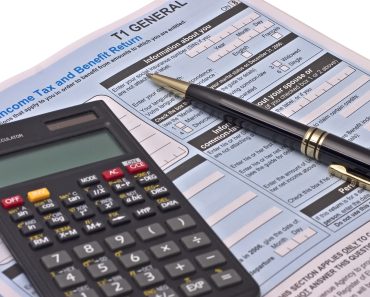
Canada owes quite a bit to its 2.7 million self-employed workers. Without these hard-working, entrepreneurial individuals, our beautiful country couldn’t enjoy the boutique providers and unique services many depend on and love.
Although many self-employed workers enjoy the freedom and flexibility their careers provide, tax season can be another story altogether. Compared to employed individuals filing traditional annual returns, self-employment taxes can be significantly more stressful.
Are you a self-employed Canadian? A notable benefit of self-employment is the ability to make decisions on your time. It can be easy to let tax season spoil your enjoyment of career flexibility as you fight red tape and piles of paperwork. Fortunately, it doesn’t need to be this way.
What are Self-Employment Taxes?
Canada requires you to track your income and expenses as a self-employed worker. One of the great things about operating as a self-employed worker is that Canada deducts your expenses against your income. Most employees don’t have this same luxury, typically resulting in higher taxes.
An income tax calculator in Canada can help you calculate your income and expenses, producing either a profit or loss. If you incurred a profit, your self-employment tax would likely rise. Consequently, when you display a loss, your tax payable number equals $0, or you will receive a tax refund.
Your profit or loss total represents what Canada considers your annual wage. You will report this total on your professional or business income tax return.
The Canadian taxation system provides filers with a tiered structure via tax brackets. For example, the tax brackets in Ontario provide varied rates depending on how much you earn. A worker may pay 15% on their first $50,000 taxable income, with increased payment amounts based on more significant income amounts.
What’s the Difference Between Filing as Self-Employed and as an Employee?
Canadian workers filing as ‘employed’ receive a T4 slip from their employer, and the government deducts taxes from each paycheck. As a self-employed worker, Canada cannot deduct taxes from your pay. You must make your estimated tax payments each quarter while deducting business expenses related to your work.
Canada requires all self-employed workers to report all income and expenses on their personal tax returns. When your income originates from self-employment, or you made an income from a combination of self-employment and standard employment, you can prepare one tax return that includes both. A tax calculator in Ontario like Paycheck Guru’s can help you quickly make these calculations.
The Canada Revenue Agency (CRA) bases the taxes you pay on the year’s federal income tax rates, as well as your provincial or territorial income tax where you reside. When filing your self-employed taxes, keeping track of every receipt and invoice for your business expenses is critical. You can use these with an income tax calculator in Canada to maximize your potential tax savings.
Deducting Your Business Expenses
A business expense is any cost you incur while running your self-employed business. To claim deductible expenses, you must back up your costs with itemized receipts. If you keep good records, you can deduct some of these expenses from your taxes while avoiding problems related to CRA auditing.
While operating a self-employed business, you may encounter ambiguous listings on your expense report that the CRA may interpret as personal expenses rather than professional. In these instances, make notes on receipts to outline these expenses’ purpose. If you take a client or employee to lunch to discuss a project, write on the back of the receipt who you met and what you discussed.
Canada also considers some expenses as only partially deductible. If you use a home office with an internet connection for freelance work 60% of the time and recreation/personal use the other 40%, you can only legally deduct 60% of your total internet bill.
Calculating home office expenses isn’t easy. These deductions will vary from business to business. Asking a professional and utilizing a specialized tax calculator in Ontario can help you accurately report and calculate expenses while ensuring you meet all regulations when determining the nuances of your self-employment deductions.
Who Does the CRA Consider “Self-Employed,” and What Taxes do They Pay?
The Canadian government will consider you a self-employed worker if you:
- Are a member of a partnership that performs a trade or business
- Carry a trade or profession
- Own a small business operating as the sole proprietor or individual contractor
- Participate in the platform economy, including economic and societal activities facilitated by the internet, mobile applications, or other technology use
- Are otherwise in business for yourself (including freelancing and part-time work)
Furthermore, Canada holds self-employed workers responsible for paying the following taxes on self-employed or business income:
- Federal and Provincial income tax
- Contributions to the Canada Pension Plan (CPP)
- Goods and services tax, provincial or territorial sales tax (if applicable), and/or harmonized sales tax
- Employment insurance contributions (if you opt into a program)
As a self-employed worker, you must report your entire income on your tax return or face penalties from the Canada Revenue Agency. Filing your taxes remains the only way to obtain government tax benefits like provincial or territorial tax credits, a GST/HST tax credit, and the Canada Child Benefit.
Self-Employment Tax Calculator
Many individuals completing their self-employed tax returns utilize software to help them ensure accurate and efficient filing. An income tax calculator in Canada can help guide you through the convoluted process, making filing as easy as inputting your information.
You can use a self-employed income tax calculator in Canada like Paycheck Guru’s to make early estimations and receive assistance while filing a paper return.
Paycheck Guru is a tax expert providing individuals with summaries of the Canadian tax system via detailed tables. We additionally offer users various tax calculators for assistance during tax filing season.
Contact our friendly and professional staff today to learn about tax brackets in Ontario and Canada abroad, our company, and how Paycheck Guru can help you with your self-employment tax return.






